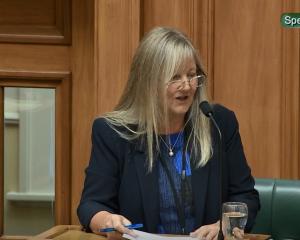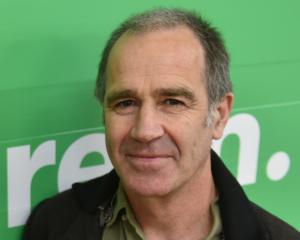New Zealanders will get a vote on a new national flag regardless of who is in the next government, as the main parties say they will back Prime Minister John Key's plan to hold a public referendum away from the glare of an election campaign.
Mr Key unveiled plans yesterday to allow New Zealanders to vote for an alternative to the century-old Union Jack and Southern Cross, which, he said, symbolised a colonial era "whose time has passed".
A public referendum would be held during next parliamentary term, and separately from the 2017 election, with guidance from a cross-party group of MPs and an independent panel of experts.
Labour and Greens backed Mr Key's proposal to treat the issue dispassionately by debating it outside of an election period, though Labour leader David Cunliffe said it was still a distraction from more important issues, such as inequality.
Mr Key said that holding a referendum in the next term gave time for widespread public consultation.
It would also mean that the World War I centenary next year would be commemorated under the flag which soldiers fought and died for in Gallipoli.
The Returned Services Association has been one of the most outspoken critics of changing the flag.
Mr Key said he did not underestimate the significance of the flag to soldiers, "but being respectful of our history does not lock us permanently in the past".
The process outlined by the Government did not rule out retaining the current national flag.
Mr Key made clear his preference for a change from a flag that represented a country moving from the 18th century to the 19th century - a time before superpowers, air travel, world wars, the rise of Asia and New Zealand's greater role in the Pacific.
Choosing a new flag did not mean becoming isolationist or anti-monarchist, but was "one more step in the evolution of modern New Zealand".
Mr Key said: "We want a design that says 'New Zealand' whether it's stitched on a Kiwi traveller's backpack outside a bar in Croatia, on a flagpole outside the United Nations, or standing in a Wellington southerly on top of the Beehive every working day."
A new cross-party group of MPs would decide the finer points of the voting process.
Mr Key noted that a two-stage referendum would create more confidence in the final result. New Zealanders could first vote for the best alternative flag from three or four options, then vote on the winning design versus the existing flag.
Massey University senior researcher Malcolm Mulholland said that the process outlined by the Government met all the criteria for changing a national flag.
It had no political bias, involved all parties, and allowed citizens' engagement.
- Isaac Davison of the NZ Herald












